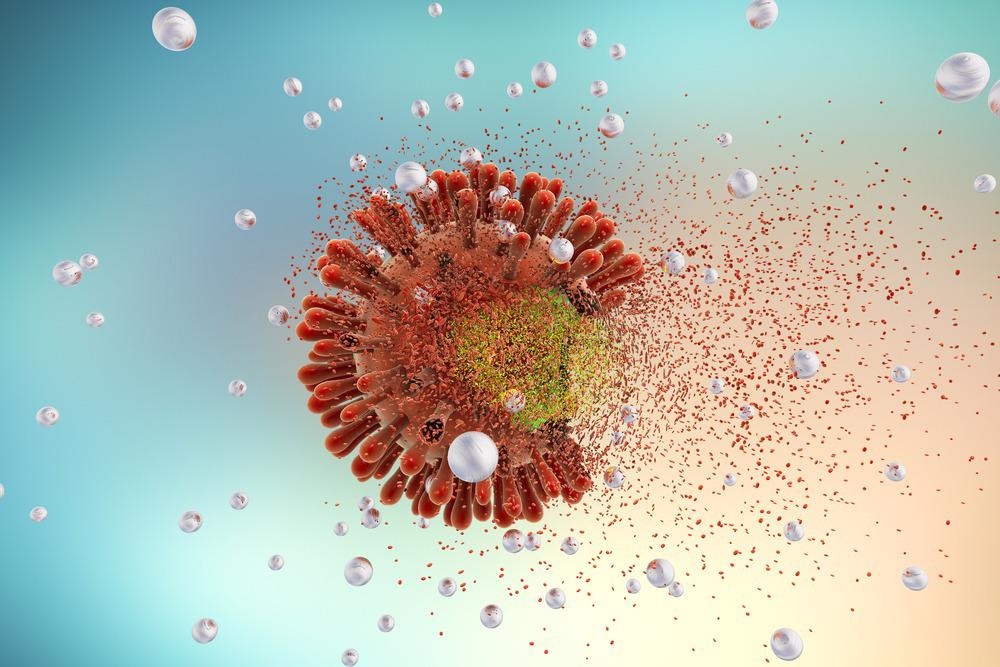A biochemistry researcher from the University of Miami Miller School of Medicine has discovered that a nanoparticle drug delivery system can help decrease HIV/AIDS viral reservoirs present in the brain that generally lead to neurological issues.

Image Credit: Kateryna Kon/Shutterstock.com
While HIV can be managed as a chronic condition, current drugs cannot cross the blood-brain barrier. Therefore, the ability of nanoparticles to deliver antiretroviral drugs to the brain is a significant breakthrough that could potentially improve the treatment of brain cancers and other diseases.
Shanta Dhar, PhD, Associate Professor of Biochemistry and Molecular Biology, Miller School of Medicine, University of Miami
Dhar is also an assistant director of technology and innovation at Sylvester Comprehensive Cancer Center at the University of Miami Miller School of Medicine.
Using Nanoparticles for Drug Delivery
In the last 10 years, Dr. Dhar has examined a polymer chain nanoparticle as a vehicle for intracellular drug delivery. Dhar’s new laboratory study titled “Brain-Accumulating Nanoparticles for Assisting Astrocytes to Reduce Human Immunodeficiency Virus and Drug Abuse-Induced Neuroinflammation and Oxidative Stress” was reported recently in ACS Nano, an American Chemical Society journal.
The study co-authors from Miller School were Bapurao Surnar, PhD; Anuj S. Shah; Minseon Park, PhD; Akil A. Kalathil; Mohammad Z. Kamra, PhD; and Michal Toborek, MD, PhD. The research group included Nagesh Kolishetti, PhD, as a corresponding author; his student, Royden Ramirez Jaime, and Madhavan Nair, PhD, all from the Herbert Wertheim College of Medicine at the Florida International University.
According to Drs Dhar and Kolishetti, “Using an experimental model, we were able to use biodegradable brain-targeted polymeric nanoparticles to reduce the HIV/AIDS viral burden. We also included antioxidant and anti-inflammatory neuroprotectants to address stress and inflammation in the brain cells.”
Dr. Dhar observed that nanoparticle drug delivery provides a new approach for treating HIV-associated neurocognitive disorders, like HIV dementia, which could be magnified by recreational usage of drugs in HIV-positive individuals.
Looking ahead, this therapeutic strategy, which we have demonstrated in our laboratory, has great potential for improving treatment of a wide range of brain diseases.
Shanta Dhar, PhD, Associate Professor of Biochemistry and Molecular Biology, Miller School of Medicine, University of Miami
Journal Reference:
Surnar, B., et al. (2021) Brain-Accumulating Nanoparticles for Assisting Astrocytes to Reduce Human Immunodeficiency Virus and Drug Abuse-Induced Neuroinflammation and Oxidative Stress. ACS Nano. doi.org/10.1021/acsnano.0c09553.